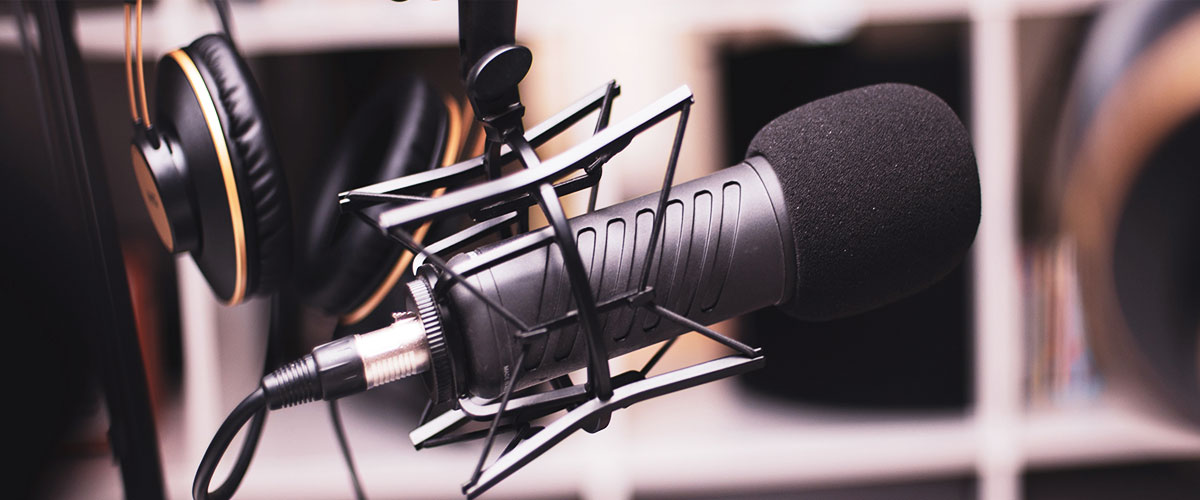What makes a good podcast stand out in today’s thriving podcasting landscape? This question holds immense importance as a great podcast is not merely an audio recording; it’s a powerful tool that can engage and inspire listeners! In this article, we’ll look at the key factors that will allow you to start your podcast correctly and gradually improve the quality of your content. In addition, I’ll share my personal experiences, secrets, and tips.
Originality
What separates a humdrum podcast from one that truly rocks the charts? It’s the secret sauce of originality. Think about it — there’s no shortage of podcasts out there, covering everything from quantum physics to cat psychology. But what makes your podcast stand out in this audio jungle?
It’s all about having that “a-ha” moment — a unique premise or a fresh angle that makes people perk up and go, “Now that’s interesting!” You don’t have to be an avant-garde genius; you just need to infuse your podcast with a pinch of that magic “you.”
Imagine the podcast world without “Serial.” It brought storytelling to the true-crime scene like never before. One captivating story across episodes, and bam, it was a sensation! That’s the power of originality.
Originality doesn’t mean you have to reinvent the wheel; it’s about putting your unique spin on a topic or idea. Look for opportunities to infuse your personality, experiences, and insights into your podcast. This is where a true connection with your audience is forged.
Target audience

Imagine throwing a surprise birthday party without knowing who the guest of honor is. Sounds weird, right? Well, creating a show without a clear understanding of your target audience can feel just as perplexing. So, remember that knowing your audience is paramount.
- Start by digging deep. Research, survey, and gather data about your desired audience. Understand their interests, problems, and what tickles their curiosity. Are they tech-savvy millennials or nature-loving retirees? Knowing this helps you tailor content that resonates.
- Now, let’s talk about content. It’s not a one-size-fits-all affair. Craft episodes that speak directly to your target audience’s pain points or passions. If you’re into tech and your audience is fellow geeks, geek out together. Share insights, tips, and inside jokes.
- In the end, podcasting success isn’t just about your voice — it’s about theirs. When you speak their language and address their needs, that’s when the magic happens.
Your audience isn’t just listeners; they become loyal fans. And that’s what makes a show truly great.
Planning and structure

What makes a podcast good? A great show is like a well-constructed building: it needs a solid foundation, a thoughtful design, and a structure that holds it all together. Planning is your blueprint. It sets the tone and direction for your show. Here are a few tips to achieve it:
- Start by outlining your episodes. What’s the big idea? What points do you want to hit? It’s like a road trip; you need a map to know where you’re going.
- Structure matters. Think of it as the framework of your podcast. Create a logical flow from start to finish. Introduce your topic, delve into details, and wrap it up neatly. Avoid tangents that lead nowhere – they’re like architectural eyesores.
- While planning is important, being adaptable is just as vital. Sometimes, your show may take unexpected turns, like a plot twist in a novel. Be ready to embrace these moments; they can add depth and authenticity to your content.
A well-organized and coherent show makes it easier for your audience to follow along. When your listeners can anticipate your flow, they engage more.
Engagement
Engagement is the vital heartbeat of your show. When your audience feels heard and valued, they become loyal listeners.
- Respond to comments and reviews. These are digital conversations. Acknowledging your audience’s input builds rapport. Remember, interaction is a two-way street.
- Incorporate listener questions and stories into your episodes. It makes your content relatable and shows you care about your community. Your audience isn’t just passive listeners; they’re contributors to your podcast’s narrative.
Engagement creates a vibrant, dynamic show that evolves with your listeners. When you embrace their voice, you nurture a connection that turns one-time listeners into lifelong fans.
Value

Imagine your show as a gift. To truly engage your audience, you must offer something valuable. Value takes many forms. It could be education, teaching a new skill, or sharing insights. It could be entertainment, laughter, or a great story that brightens someone’s day.
Consider “How I Built This” by NPR, where entrepreneurs reveal their journey to success. Listeners gain valuable lessons from these tales of triumph and failure. Or take the “Joe Rogan Experience,” where engaging interviews bring new perspectives and ideas. It educates and entertains simultaneously. Then, there’s “The Daily,” by The New York Times. It provides news, keeping listeners informed and engaged.
Value isn’t just information; it’s also the emotional connection you create. When your podcast adds value to someone’s life, it becomes a staple in their routine.
Authenticity and relatability

To create a truly great podcast, be genuine and relatable. Here are some golden podcast tips and tricks to master authenticity:
- Share your stories: Think of your podcast as a conversation with friends. Share personal anecdotes, experiences, and opinions. People love relatable content. It makes you more human and approachable.
- Listen and respond: Engage with your audience. Address their questions and comments. This interaction builds trust and loyalty.
- Don’t script everything: While a structured outline is essential (as I’ve said before), avoid over-scripting. Let your personality shine through. Authenticity often lies in the unscripted moments, the laughter, the pauses, and the genuine reactions.
A prime example of authenticity is “The Moth,” a show featuring real people sharing real stories. Listeners connect with the raw, unfiltered emotion.
So, authenticity is a two-way street. Your audience can spot sincerity a mile away, and it’s the key to creating a show that resonates. So, drop the facade and be yourself. By the way, this is my favorite technique in the podcasting world.
Beginning with a strong hook

Grabbing your audience’s attention from the get-go is the name of the game. So, you have to begin with a captivating hook that leaves listeners hungry for more. But what exactly constitutes a strong hook?
- Gripping storytelling: Start with an enthralling narrative. Share a personal anecdote, a dramatic incident, or a curious tale that’s relevant to your episode’s theme. Storytelling connects with your audience on an emotional level.
- Provocative questions: Pose a thought-provoking question right off the bat. This invites your listeners to ponder and engages their curiosity. An intriguing query can set the tone for an exploratory episode.
- Fascinating facts: Begin with a surprising or little-known fact related to your topic. It’s like offering a tasty appetizer before the main course – it piques interest and teases what’s to come.
- Teasing trailers: A teaser about what the episode will cover can build anticipation. Give your audience a glimpse of the exciting content awaiting them. It’s like a movie trailer for your podcast.
A strong hook sets the tone, captivates your audience, and keeps them engaged throughout the episode. Be like the famous Pudge from Dota 2. Once you’ve got your “listener” hooked, you can’t let him go.
Editing and production quality
While content is king, quality reigns supreme. To create a truly great podcast, you should invest time and effort into editing and production.
- Editing is your tool to eliminate stutters, awkward pauses, and verbal slip-ups. It ensures your content flows smoothly and maintains your listeners’ engagement.
- A well-edited show maintains a logical and engaging narrative flow. It’s the difference between a riveting story and a jumbled mess.
- Quality editing demonstrates your commitment to professionalism. Listeners are more likely to trust and return to podcasts with superior production.
- Audio enhancements, like noise reduction and equalization, improve sound quality. Investing in good equipment and software ensures your podcast sounds crisp and clear.
A polished show not only attracts new listeners but retains them. It showcases your dedication to delivering top-notch content and ensures your message is heard loud and clear. So, don’t skimp on the editing and production phase – it’s the key to a great show.
Conclusion
By weaving these insights into your podcasting practice, you’re primed to embark on a path toward creating an exceptional show. Remember, it’s not just about following the rules; it’s about discovering your distinct voice and perspective.

















